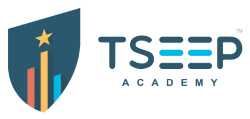From Chalkboards to Real Life: Strengthening Life Skills Education in India
In recent decades, India has made significant strides in recognizing the importance of Basic Life Skills (BLS) education as a foundational element of holistic youth development. Spearheaded by the National Council of Educational Research and Training (NCERT), the Ministry of Education, and supported by leading United Nations (UN) organizations life skills have been increasingly integrated into the school curriculum. Landmark programs like the Adolescence Education Programme (AEP), Samagra Shiksha, and the National Education Policy (NEP) 2020 have brought vital focus to competencies such as self awareness, emotional regulation, interpersonal relationships, and responsible decision – making. However, the reach, quality, and consistency of implementation remain uneven across India’s educational ecosystem.

At present, a large number of institutions across the country – irrespective of geographic location – lack access to essential resources required for effective life skills education. Trained facilitators are in short supply, structured and contextually relevant teaching modules are limited, and digital tools for interactive delivery are often unavailable, particularly in resource – constrained environments. These issues are even more acute in rural and government – run schools, where challenges such as inadequate infrastructure, limited teacher capacity, and the absence of localized learning materials persist. Compounding the issue is the lack of a standardized national framework and measurable assessment mechanisms, which hinders both monitoring and impact evaluation. While several NGOs and community – led initiatives have made commendable progress, the challenge of scaling such efforts sustainably remains significant.
The need for comprehensive life skills education has never been more urgent. In the aftermath of the COVID-19 pandemic, globally adolescents face heightened stress, anxiety, and a growing disconnect from social engagement. At the same time, the demands of the modern workforce are evolving rapidly. Employers are increasingly prioritizing soft skills such as communication, adaptability, critical thinking, teamwork, and emotional intelligencs – skills that are rarely addressed through traditional academic instruction. This shifting landscape calls for a systemic integration of life skills into formal education to better prepare students not only for examinations, but for the complexities of life and work. Embedding life skills at every level of the education system is essential for bridging the gap between academic learning and employability, and for cultivating a generation of emotionally resilient, socially responsible, and future – ready citizens.
As a response to these emerging needs, TSEEP Academy’s flagship initiative – The Growth Groove: Basic Life Skills Program – offers a scalable and structured solution designed to transform life skills education across India’s diverse educational settings. The program emphasizes experiential learning and culturally rooted content, with a focus on building personal, social, and cognitive competencies essential for 21st – century success. Through a blend of reflective practices, learner-centered methodologies, and inclusive delivery models, The Growth Groove equips students with the practical tools needed to succeed in real – world environments. More than just a curriculum, it is a movement to redefine success for today’s youth – ensuring that they leave the classroom not only with knowledge, but with the life skills and confidence required to thrive in dynamic personal and professional landscapes.
To Know More: Contact US
References
- NCERT (2012). Life Skills Education Resource Manual for Teachers. New Delhi: National Council of Educational Research and Training.
https://ncert.nic.in - WHO (1997). Life Skills Education for Children and Adolescents in Schools (WHO/MNH/PSF/93.7A.Rev.2). Geneva: World Health Organization.
https://www.who.int/publications/i/item/WHO-MNH-PSF-93.7A-Rev.2 - Ministry of Education (2020). National Education Policy 2020. Government of India.
https://www.education.gov.in/sites/upload_files/mhrd/files/NEP_Final_English_0.pdf - NCERT & NACO (2005). Adolescence Education Programme: Implementation Guidelines. New Delhi.
https://ncert.nic.in/dee/pdf/aep/aep_Implementation_Guidelines.pdf - UNICEF India (2023). Adolescent Development and Participation.
https://www.unicef.org/india/what-we-do/adolescent-development-participation - Ministry of Education (2023). Samagra Shiksha Scheme.
https://dsel.education.gov.in/samagra-shiksha




